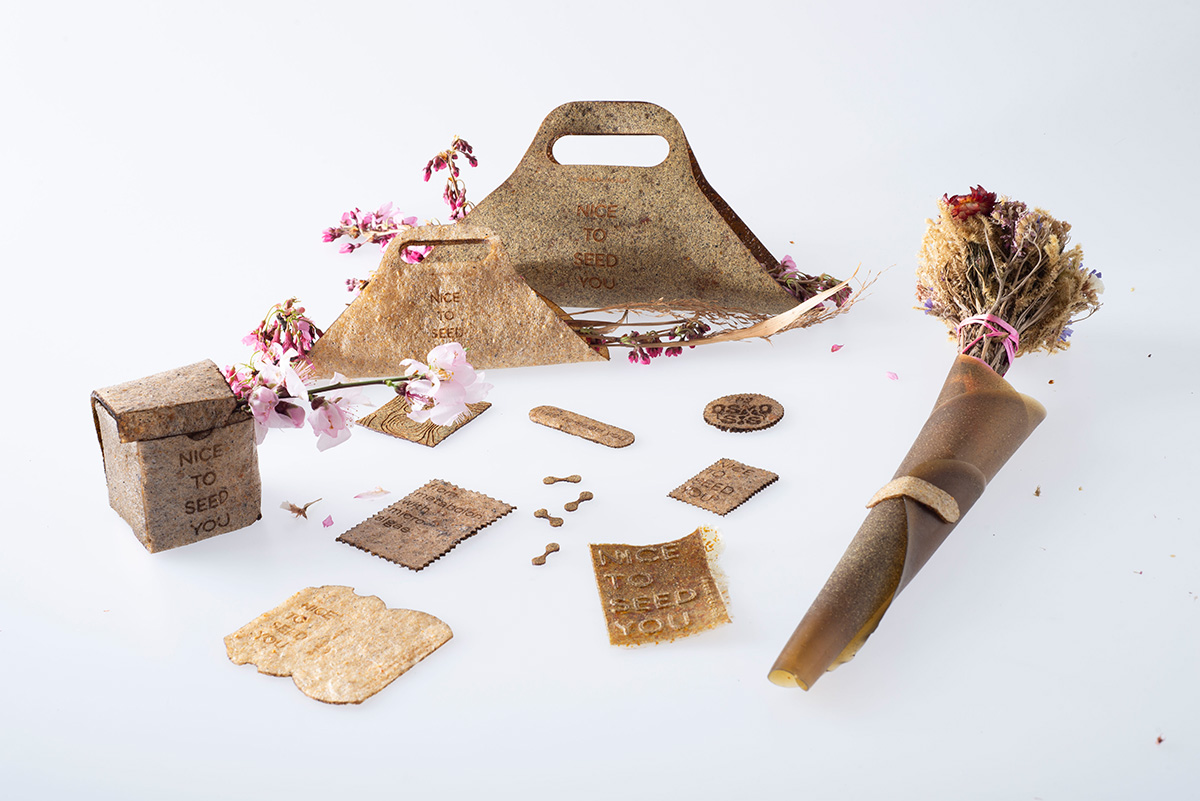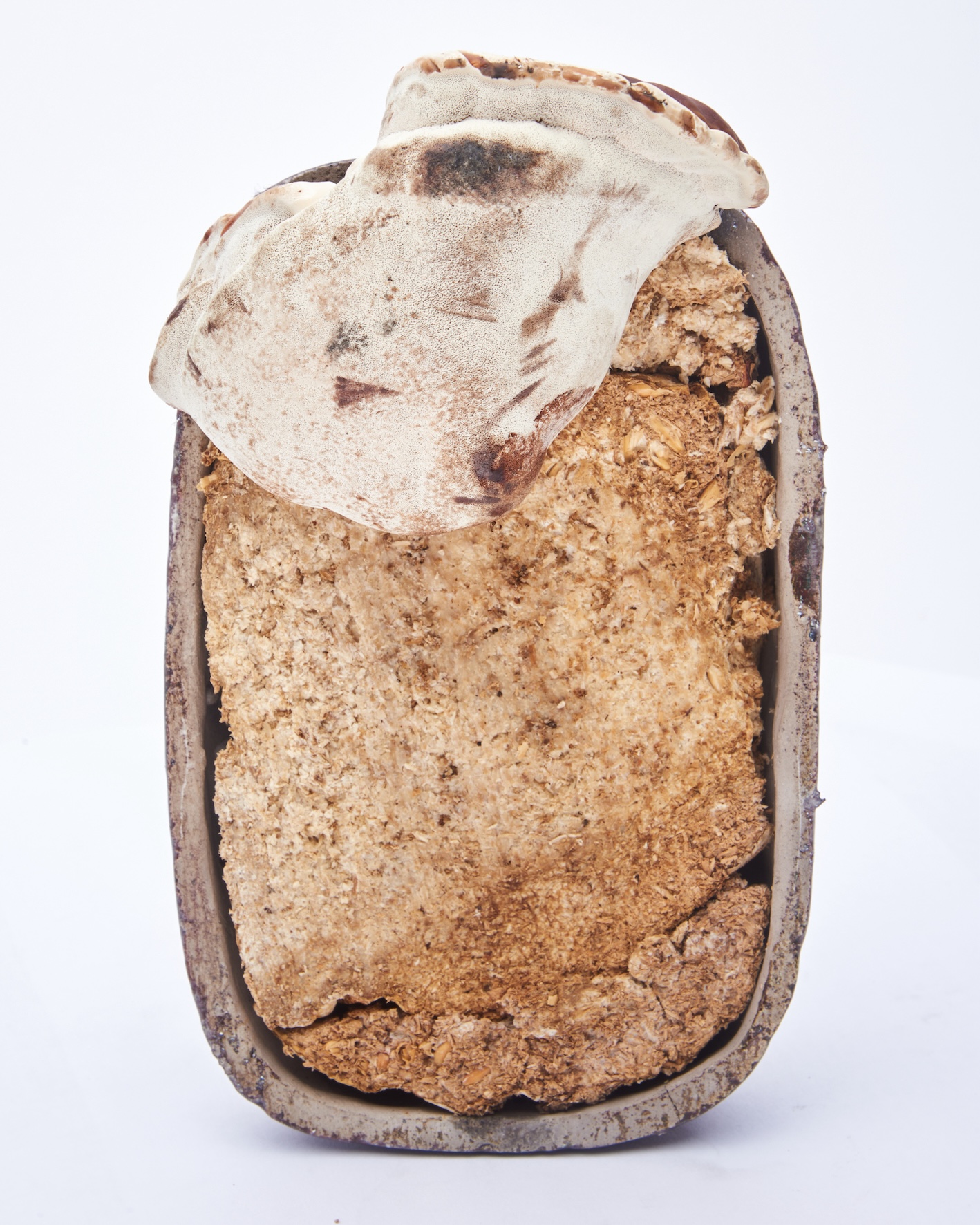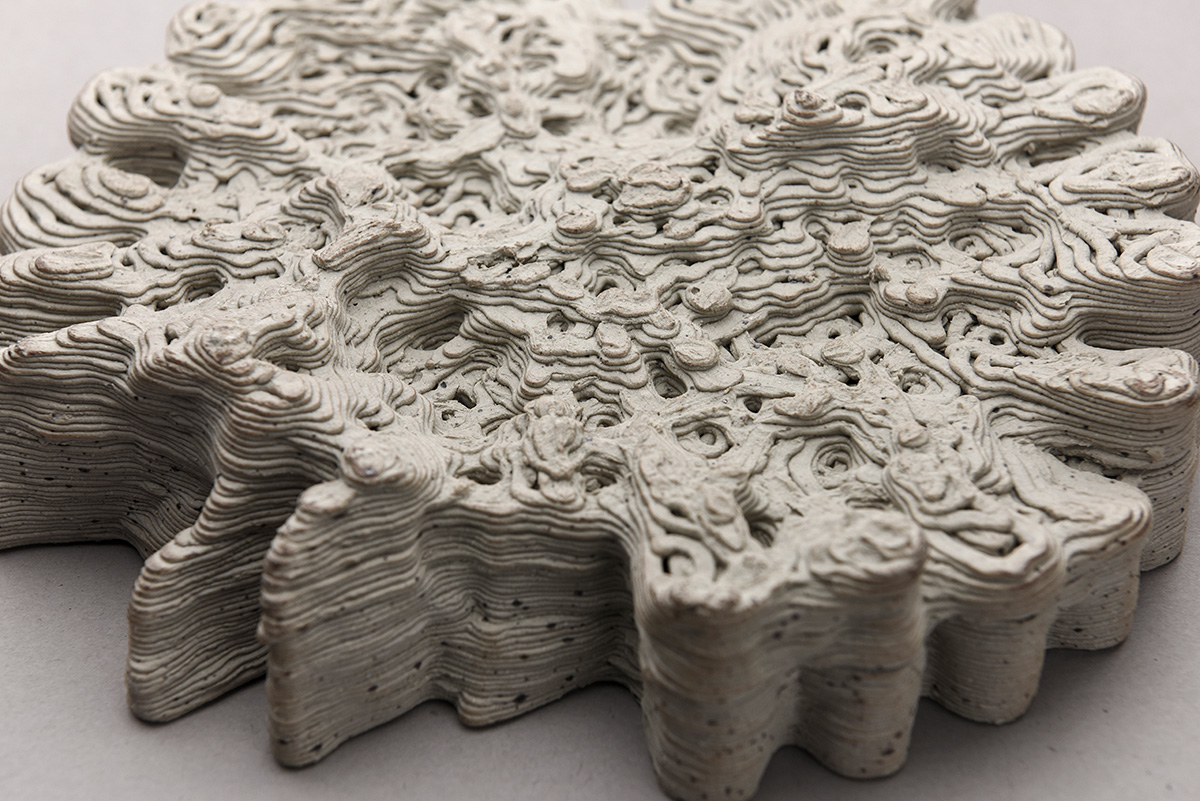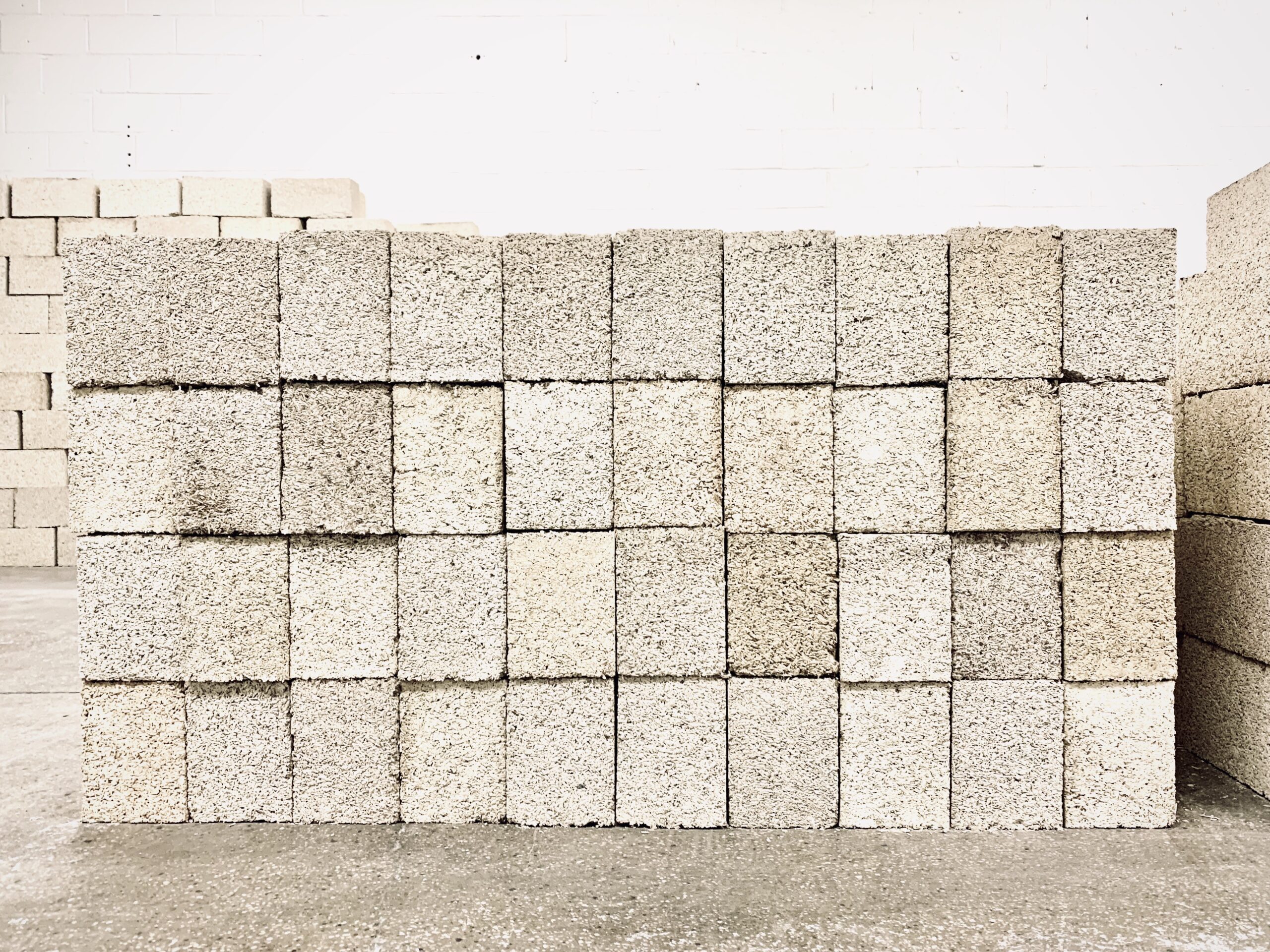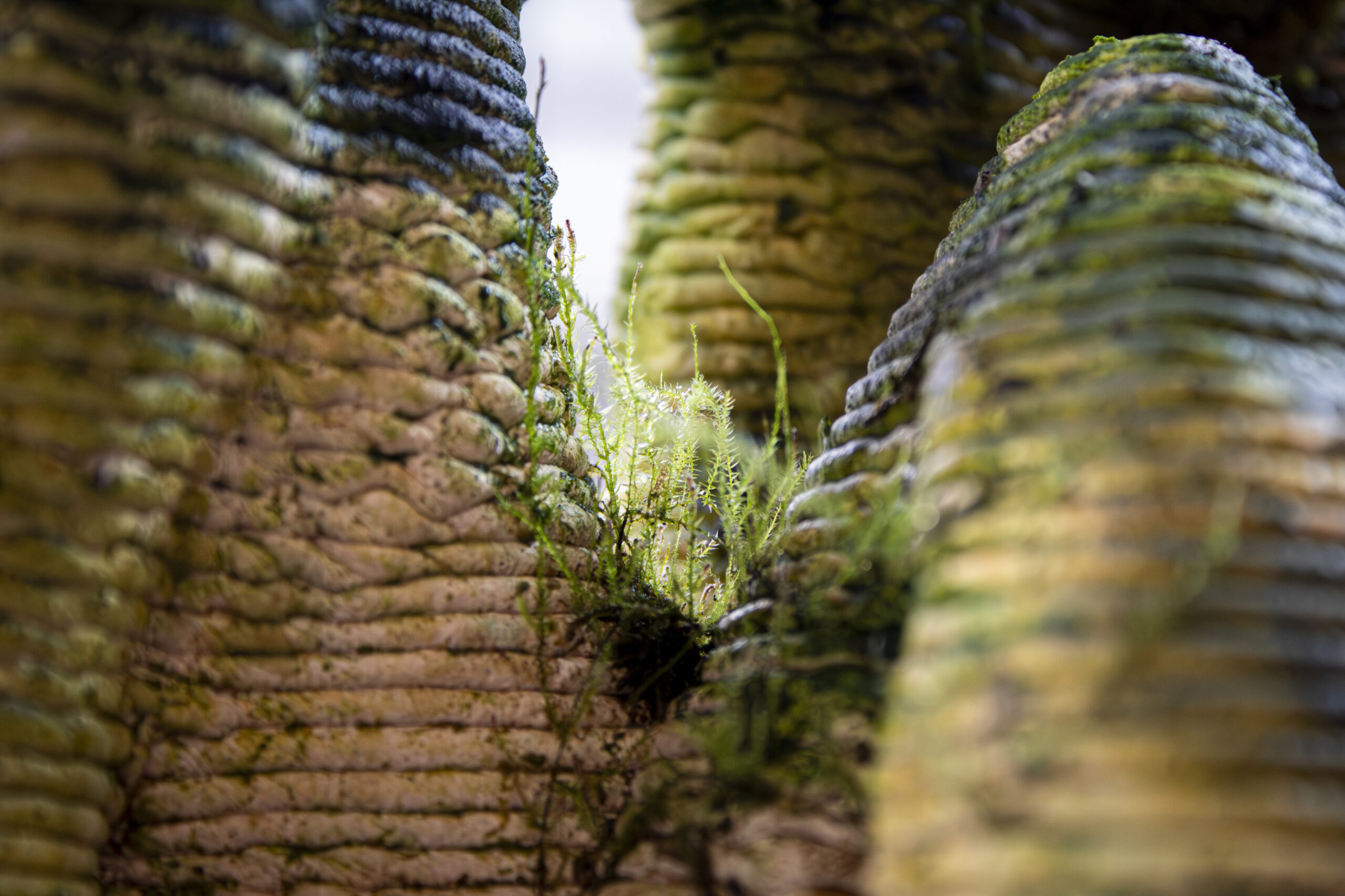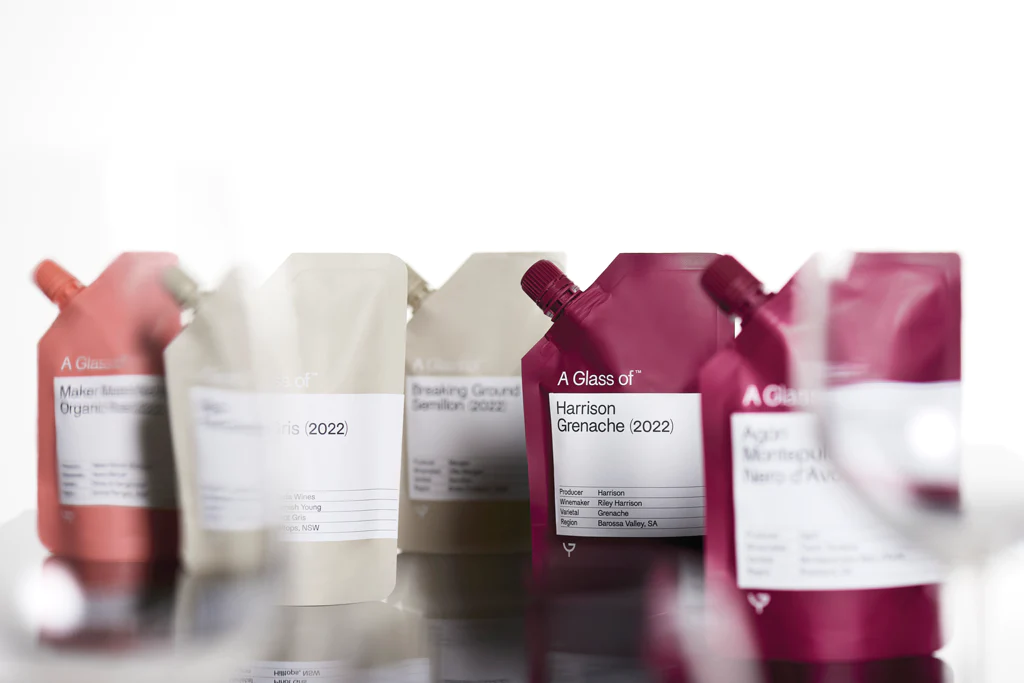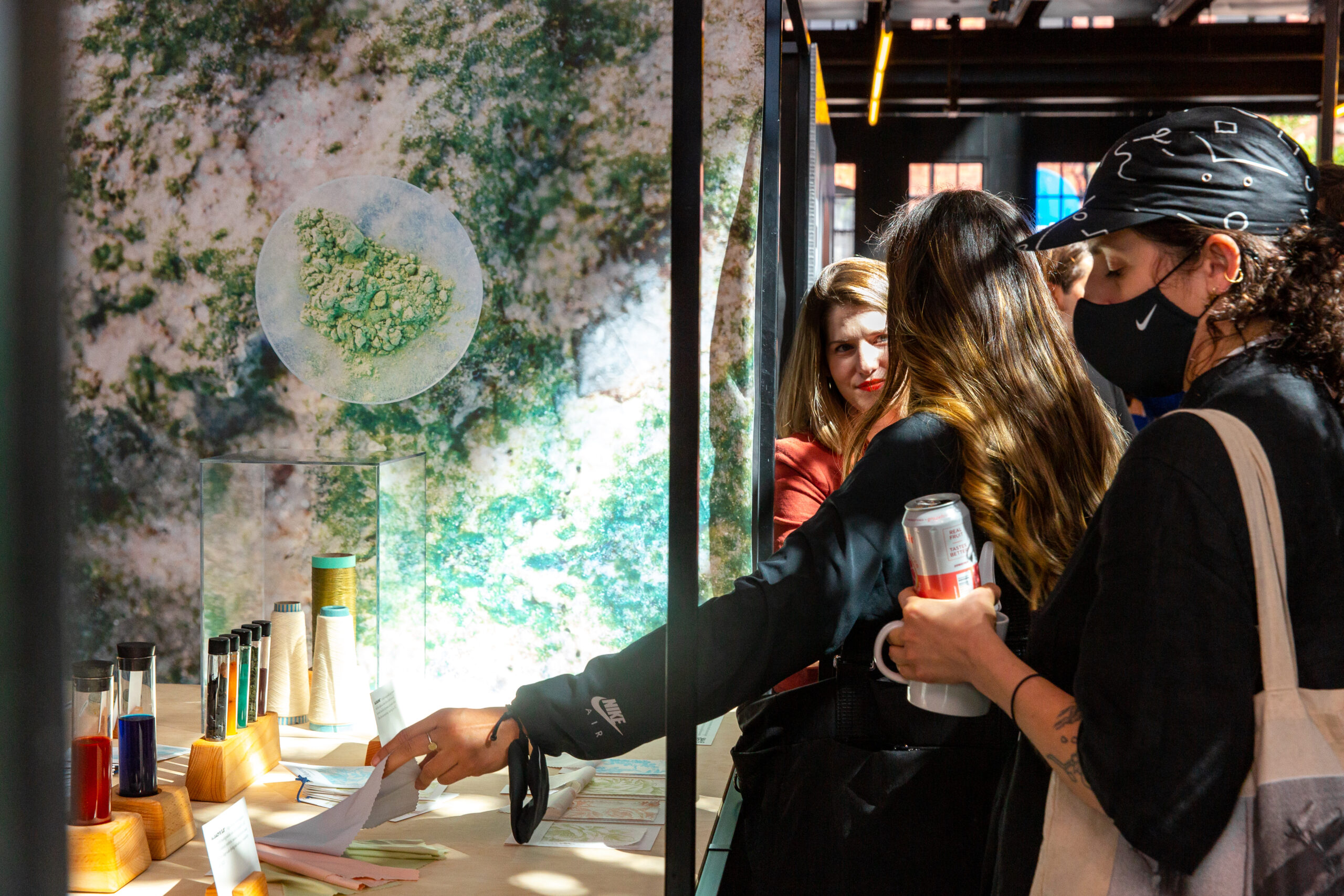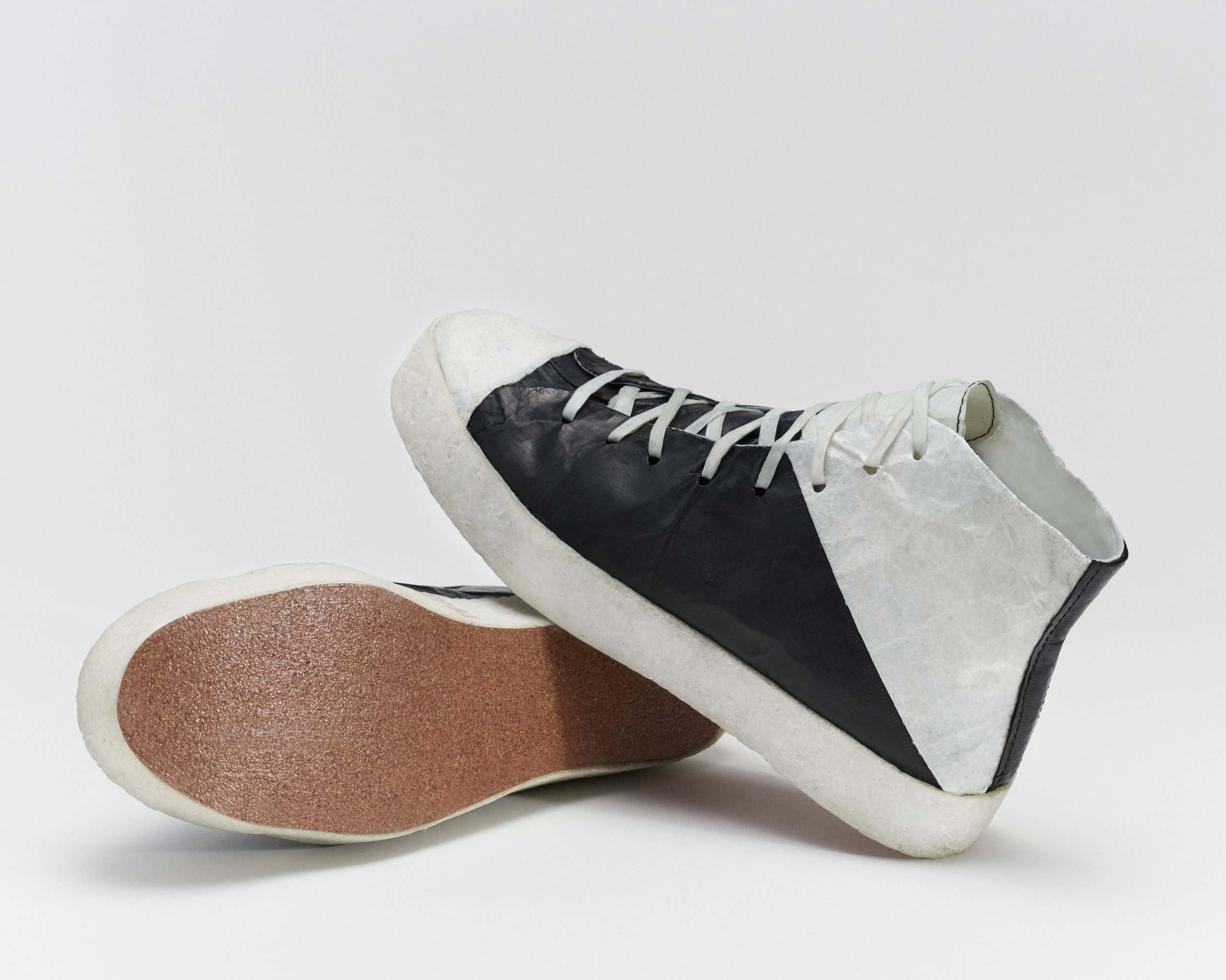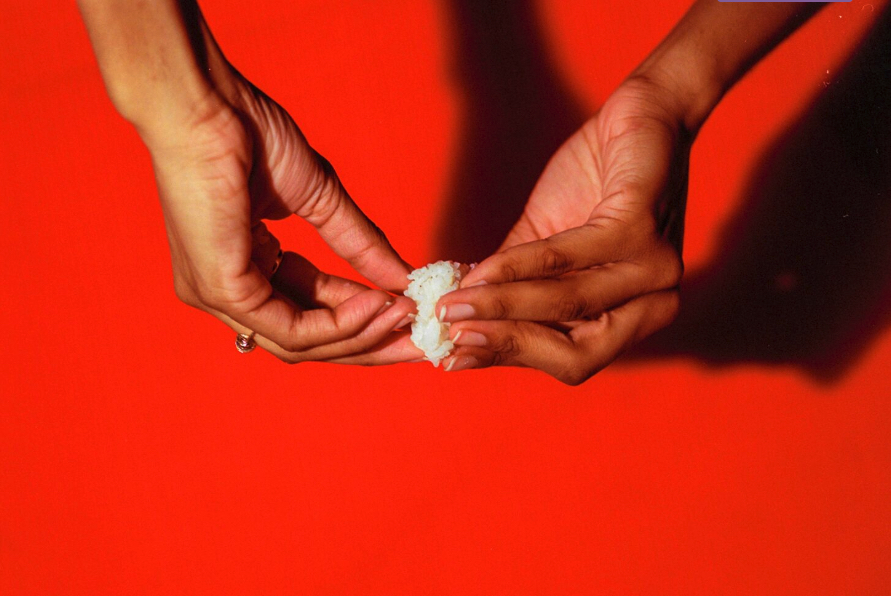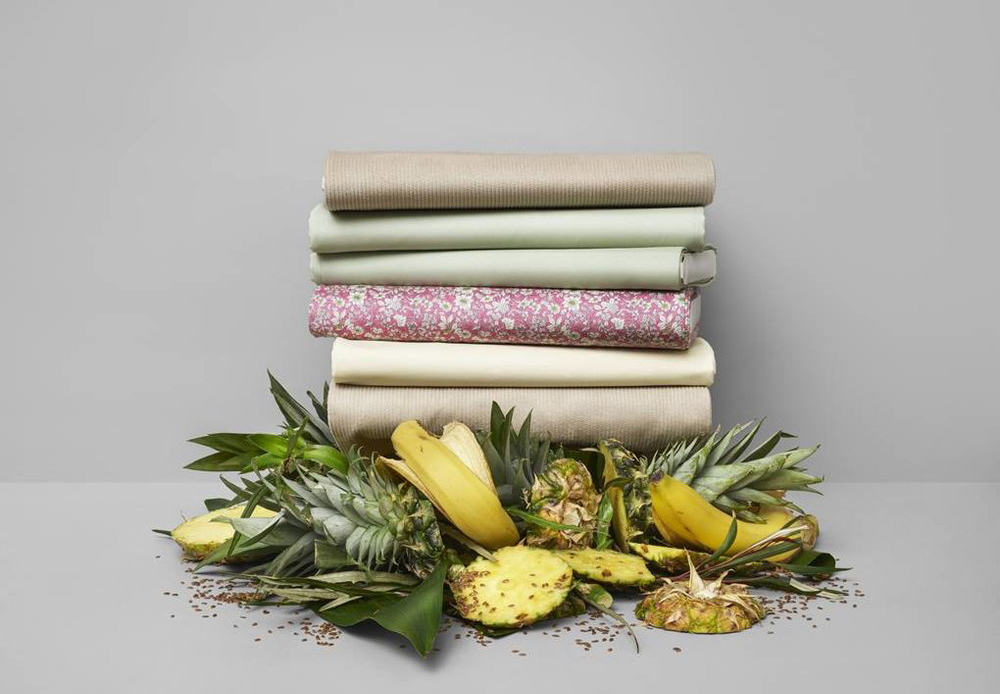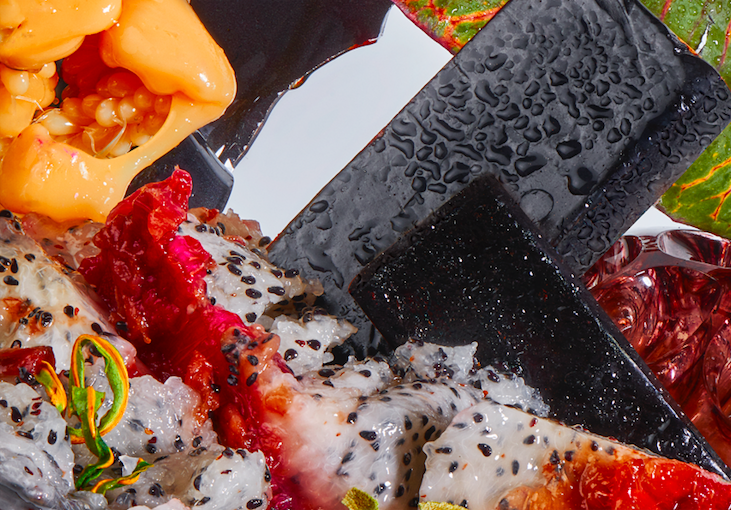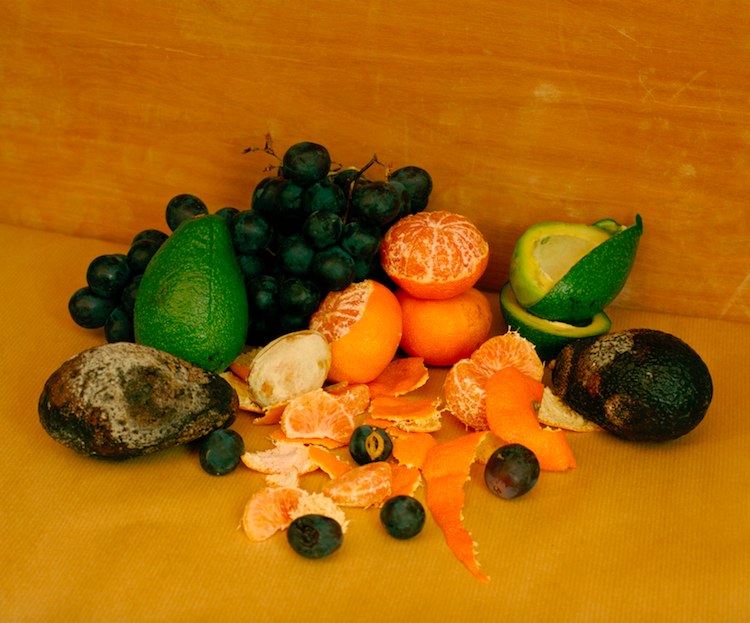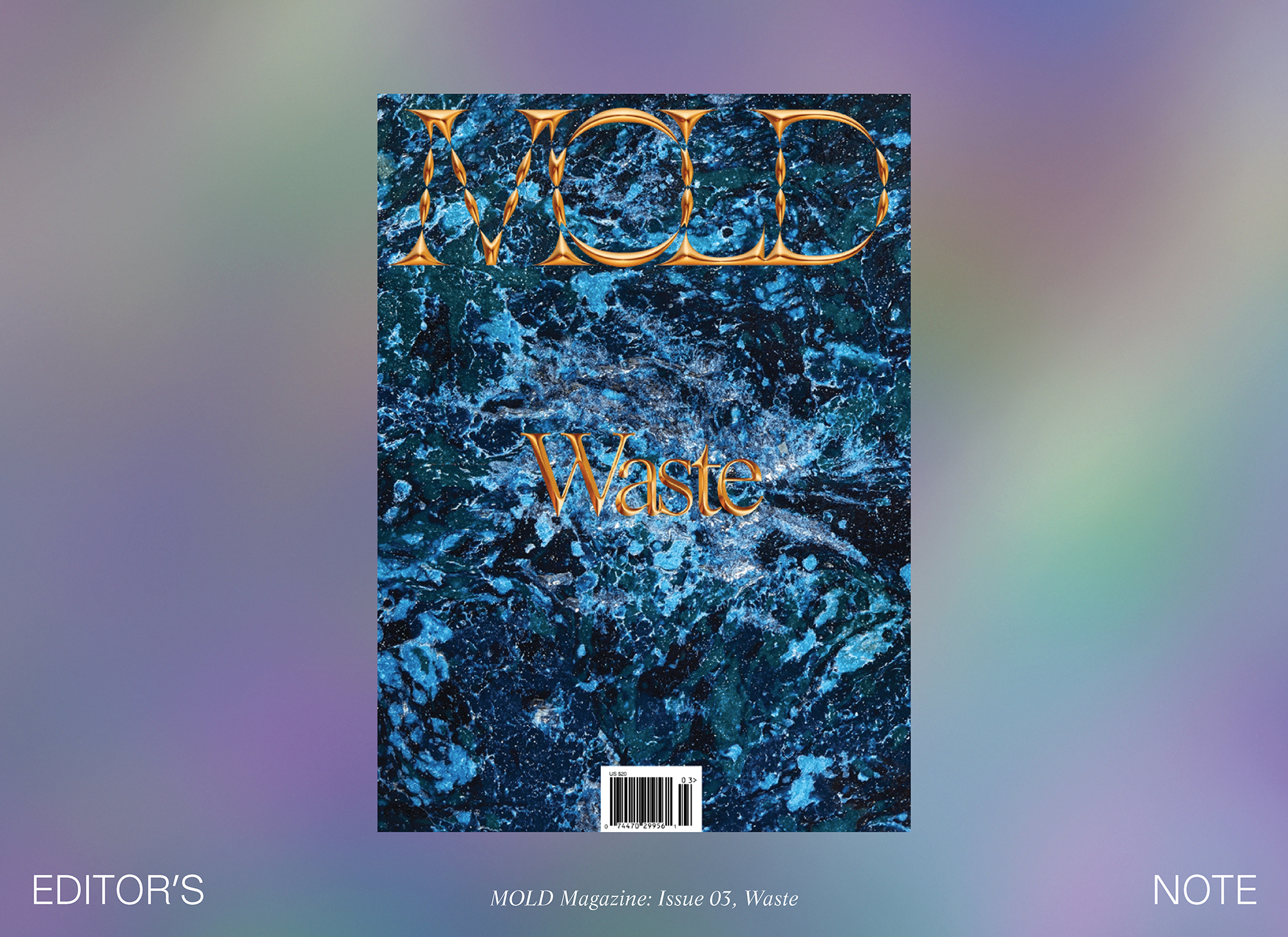De-scaled and filleted, it is estimated that over 50% of the fish pulled from the ocean is discarded, labeled as “waste” by the industry. Some of it—offal, blood, shellfish—is recovered for fish meal and fish oil, but much of the skins and scales are discarded by the fisheries. In the UK alone, over 172,000 tons of fish waste is produced annually. As a product design student at the University of Sussex, Lucy Hughes chose to address the incredible amount of waste generated by single-use plastics by recovering waste material from local fisheries. Her final year project, MarinaTex, a home compostable bioplastic made from fish waste (skins and scales), is this year’s winner of the annual James Dyson Award.
After over 100 iterations, Hughes derived a formula for extracting proteins from fish waste and binding it with a locally-sourced red algae to create a translucent and flexible material with a similar look and feel to a plastic sheet. Moreover, unlike most compostable bioplastics derived from bamboo, paper, corn or hemp that require industrial composting facilities to biodegrade, MarinaTex can break down in 4-6 weeks in low-resource intensive home composting environment.

A vision of food waste as a raw material for the future is not a new one—designers have been working in earnest to develop functional materials from waste streams including food and agricultural waste. Student work like MarinaTex also has a history of scaling for industry, including examples like the pineapple-waste leather alternative Pinatex and the mycellium-based packaging and architectural materials companyEcovative. MarinaTex follows suit by closing the loop using recovered waste from the fishing industry. Beyond its small production footprint—the material requires temperatures under 100 °C and the base materials can be sourced locally—the efficiency of the product is also notable. According to Hughes, one Atlantic cod could generate as much organic waste as is needed for making 1,400 bags of MarinaTex.

“A good design is something that bridges the gap between behaviors, business and our planet,” Hughes states in a video interview around her project. With the prize money of £30,000, Hughes plans to continue her research into how MarinaTex can be scaled and commercialized sustainably by harnessing local solutions for single-use plastics.
